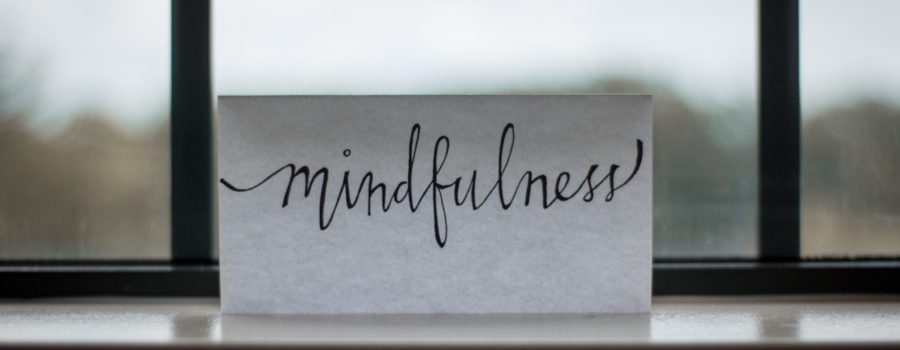How often do you think about the things you think? You might be thinking: all the time, of course! But just because a thought passes through your mind doesn’t necessarily mean that you’re cognizant of it. This is why negative self-talk is so harmful; we all too often think all kinds of unkind things about ourselves without even realizing we’re doing it. It’s also why mindfulness is so powerful.
What is mindfulness? Thanks to the self-care movement, you probably have a general idea. But diving into the details of mindfulness — and how to put it to work for you — can be quite literally lifechanging. So let’s get to it!
Mindfulness 101
Mindfulness is staying present in your experience, observing what you’re thinking, how you’re feeling, and what’s going on around you without applying judgment to any of those things.
We love the way Greater Good Magazine, UC Berkeley’s wellness publication, defines it: “Mindfulness means maintaining a moment-by-moment awareness of our thoughts, feelings, bodily sensations, and surrounding environment through a gentle, nurturing lens.”
So how do you actually be mindful? It really comes down to staying present and staying open. In this moment, you can be mindful by observing your thoughts. Sit in stillness for a couple of minutes. What crosses your mind? How do you feel, both mentally and physically? This is your opportunity to observe your thinking without being hard on yourself. All mindfulness asks is that you try to be more aware.
You can (and probably should) apply mindfulness when you’re with others, too. If someone is telling you a story or talking about their day, mindfulness invites you to be fully present in that conversation. Pay attention to the details they share with you, ask questions, and engage with the person in front of you.
Mindfulness can also go out into the world with you. The next time you’re in nature or a beautiful space, take a moment to be mindful of your surroundings. You might be surprised how differently you feel by pausing to reflect on what’s going on around you, even if you don’t stop going about your day as you engage in mindfulness.
The benefits of being mindful
Why mindfulness? Here are just a few things it can do for you.
It encourages gratitude.
Feeling grateful for the things you have is one of the best ways to banish the blues. But we often move so fast, we take things for granted. Becoming more mindful heightens your awareness of what’s going on around you and, with practice, gives you more opportunities to express gratitude and savor the heightened sense of wellbeing it brings.
It checks self-judgment.
It’s easy to be hard on ourselves. We all want to grow and become better people, so we need to stay on top of ourselves, right? Sure, but how much of your self-talk devolves into self-judgment? Mindfulness allows you to observe your thoughts, even the less-good ones you want to work on, without judging yourself for them. That way, you can progress as a human without getting buried under a mountain of debilitating guilt.
It keeps you present.
Life moves fast! You don’t want to miss the moments that make it special. And when you’re in the habit of practicing mindfulness, you won’t.
It helps you grow.
Judgment aside, observing your thoughts and habits is a very powerful tool. When you’re mindful, you avoid more of those foot-in-your-mouth moments and snap reactions. Instead, you can think, speak, and act from a place of centered calm.
To practice mindfulness, you need to get comfortable enough with your internal dialogue to participate actively in it. If trauma has made that challenging for you, we’re here to help. Get in touch with our team at the Ventura Counseling & Wellness Center to learn more about the resources we have available to help you heal.





